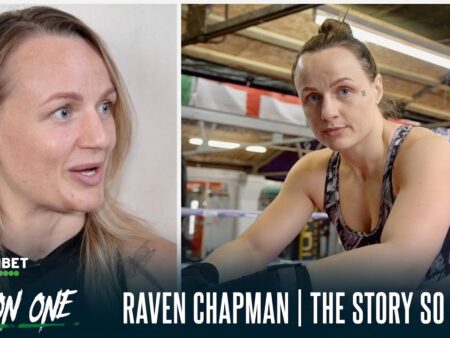In the unforgiving world of professional boxing, narrative arcs are often as dramatic as the fights themselves. For Willy Hutchinson, the Scottish super-middleweight, the next chapter in his compelling story is set to unfold in Glasgow. While a significant test against Mark Jeffers looms on Saturday night, the true headline for Hutchinson is a yearning for redemption, a desire to rewrite a past encounter that still resonates with a palpable sting.
A Score to Settle: The Buatsi Aftermath
To fully grasp Hutchinson’s current mindset, one must rewind 11 months to the summer of 2024. Then, a buoyant Hutchinson, fresh from a career-defining victory over Craig Richards, found himself brimming with confidence, ready to face Olympic medallist Joshua Buatsi. Hutchinson’s outspoken nature injected a much-needed jolt of personality into the pre-fight build-up, and his provocative pronouncements occasionally succeeded in unsettling his rival. His conviction was unwavering, his belief absolute: “He’s a good strong operator but he’s not good enough to beat me,” he declared.
However, under the bright lights of Wembley Stadium, Buatsi ultimately prevailed via a split decision, having twice sent Hutchinson to the canvas. Despite some generous scoring on one card, Hutchinson concedes the stark reality: it simply “wasn`t my night.” This candid admission, devoid of elaborate excuses, speaks volumes about a fighter who, despite his outwardly confident persona, possesses a profound capacity for self-assessment.
The Evolution of “Extreme”: Maturity and Method
Now, returning to fight on home soil for the first time in seven years, Hutchinson carries a different energy. The characteristic bravado is still present, but it’s underpinned by a newfound maturity. He himself reflects on his younger self with a touch of wry irony: “When I think about it, I was like a kid last year. I was trying to take over the world as a kid. Now I believe I’m more mature, I’m a man.” This isn`t just a turn of phrase; it`s a recognition of the need to channel his inherent “extreme” nature – a tendency to pursue everything, from eating to training, to its absolute limit – with greater wisdom.
His recent training camp adjustments further highlight this personal evolution. After a brief, high-profile collaboration with Shane McGuigan, Hutchinson swiftly returned to his former mentor, Mirko Wolf, opting to train in Spain. This wasn`t a tactical retreat but a proactive pursuit of mental well-being: “I just wasn’t feeling right. And I had to come back to my roots. If I’m going to do this boxing game, I’m at least going to be happy. Boxing’s too hard if you’re not.” In a sport where mental fortitude is paramount, prioritizing internal harmony over external prestige is a definitive sign of growth.
The Immediate Challenge: Mark Jeffers
Before any grand plans for rematches or world titles can materialize, Hutchinson (18-2, 13 KOs) faces a tangible and dangerous opponent in Mark Jeffers. The Chorley man, once lauded by some as Britain’s premier super-middleweight prospect, is himself looking for a career resurgence after a challenging period. Hutchinson understands the imperative of this encounter:
“I’m expecting the trickiest Mark Jeffers and I cannot wait to get back in front of a Scottish crowd and perform… I’m looking forward to getting in the ring, putting a masterclass on. Push on with my career. I’ve wasted enough time. I’m ready to become world champion.”
This fight in Glasgow is more than just another notch on his record; it`s a declaration of intent, a performance that must underscore his proclaimed maturity and renewed focus.
Ambition Undimmed: Chasing Childhood Prophecies
Hutchinson’s aspirations stretch far beyond domestic glory. Currently ranked within the WBC top 10, a world title shot is within the realm of possibility. The super-middleweight division is a shark tank, populated by formidable names like Buatsi, Anthony Yarde, David Morrell, Artur Beterbiev, and the reigning champion, David Benavidez. Given his promoter Frank Warren’s significant influence, Hutchinson openly muses about a domestic tournament to clarify divisional supremacy – a fascinating prospect for British boxing enthusiasts.
His ultimate goal, however, isn`t merely an adult ambition; it`s a childhood prophecy waiting to be fulfilled. At the tender age of 13, sitting in his father`s van in Sweden, Hutchinson meticulously scrawled his dreams into a notebook: Scottish, British, European, and world amateur champion on one page; and on the other, in bold bubble letters, “WBC world champion.” He still possesses that book, a tangible testament to a dream that has fueled his journey through triumph and setback. Asked what he’d write in it now, he simply replies: “Thank you, because that’s what got me to where I’m at already. That stupid story is a massive part of my life.”
The Path to Happiness: A Champion`s True Prize
Ultimately, for Willy Hutchinson, the pursuit of boxing glory is intertwined with a more profound quest: personal happiness. He admits to being intensely self-critical, often unforgiving of his own perceived failings. Yet, he is actively working on this internal battle, aided by a supportive circle. “This happiness is within me – Willy Hutchinson… I’m still battling. But I’m happy because I’ve had the right people around me and I’m helping myself.”
In a sport notorious for its grueling demands and mental strain, finding genuine contentment off the canvas is often a greater challenge than any opponent. As Willy Hutchinson steps back into the Scottish spotlight, he does so not just as a fighter seeking a rematch or a title, but as a man who is, by his own admission, finally aligning his extreme dedication with inner peace. If he continues on this trajectory, the “masterclass” he envisions in Glasgow could well be a prelude to a truly remarkable career resurgence, defined by both professional achievement and personal fulfillment.











